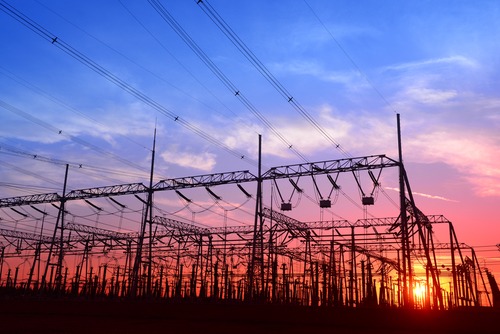
Legislators from Pennsylvania and Ohio met this week to discuss the reliability of the mid-Atlantic power grid on Monday.
Members of the Pennsylvania State Senate and the Ohio General Assembly met at the Pennsylvania Capital Building to discuss Pennsylvania-New Jersey-Maryland Interconnection (PJM), the regional energy transmission organization serving Delaware, Illinois, Indiana, Kentucky, Maryland, Michigan, New Jersey, North Carolina, Ohio, Pennsylvania, Tennessee, Virginia, West Virginia and the District of Columbia, the grid it manages, its infrastructure and the future of the region’s power production.
Attendees included Pennsylvania Sens. Gene Yaw (R-23), Ryan Aument (R-36), Elder Vogel (R-47) Scot Hutchinson (R-21), and Pat Stefano (R-32), as well as Ohio Reps. Dick Stein (R-54), Roy Klopfenstein (R-82), and Bill Reineke (R-26). The group focused on the importance of coming together to address challenges related to PJM.
“There are few issues before our region’s legislators as pressing as the need for a secure, reliable electric grid,” Yaw, hair of the Senate Environmental Resources and Energy Committee, said. “Any decision on energy policy will have a significant impact on our day-to-day lives. We had a very productive first meeting and I look forward to partnering with members of the Ohio legislature in the future to advance energy policies that are affordable, sustainable, and protect the viability of the power grid.”
PJM officials recently testified before Yaw’s committee that PJM will not have sufficient power to meet consumer demand if things continue on the current course. Legislators agreed that could result in increased prices, increased risks of blackouts and increased restriction on energy use.
PJM said that 20 percent of its existing capacity would retire by 2030. Legislators from both states agreed during the meeting that regulating policies like the multistate Regional Greenhouse Gas Initiative (RGGI), overregulation by state agencies, and reliance on renewable energy sources will speed the collapse of the energy grid.
“Residents of both Pennsylvania and Ohio depend on affordable and reliable energy to power their homes and businesses,” Aument said. “But projections from PJM show that Pennsylvanians’ and Ohioans’ current energy use could be in jeopardy if we don’t work together to swiftly implement responsible policies that promote a strong, reliable baseload power supply that generates the energy we need no matter the weather or time of day.”
The group agreed that states need good energy policy introduced that will keep costs affordable. Yaw referenced his own legislation that aims to improve the permitting process for infrastructure and transmission of natural gas required to sustain the electric grid, as well as his bill to increase fines and penalties for those who vandalize or destroy any part of a power grid.
“This meeting was very informative and reinforced the notion that, at this time, solar fields and windmills are not going to meet our energy needs,” Vogel said. “Extreme summer or winter weather could be catastrophic as our grids would either be overwhelmed or not be able to generate enough power – both resulting in power outages and potentially tragic results. Power plants fueled by nuclear, coal, or natural gas have remained consistent energy producers and should not be disregarded.”